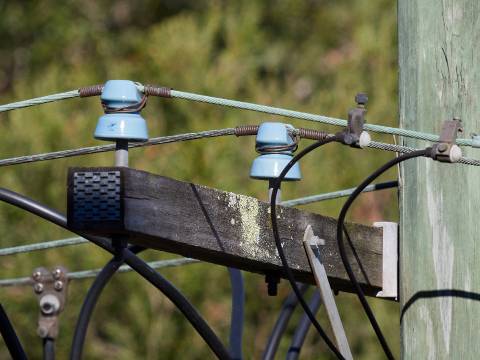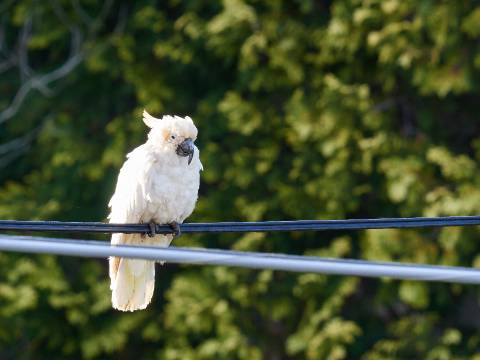|
Page 3 of 3

Sample Images
Click on an image for downloading the full-size variant.
 |
| Make | OLYMPUS IMAGING CORP. |
| Model | E-M5MarkII |
| ISO Speed | 800 |
| Focal Length | 400.0mm |
| Aperture: | f/9.0 |
| Exposure | 1/1000s |
 |
| Make | OLYMPUS IMAGING CORP. |
| Model | E-M5MarkII |
| ISO Speed | 800 |
| Focal Length | 400.0mm |
| Aperture: | f/9.0 |
| Exposure | 1/100s |
 |
| Make | OLYMPUS IMAGING CORP. |
| Model | E-M5MarkII |
| ISO Speed | 800 |
| Focal Length | 150.0mm |
| Aperture: | f/6.3 |
| Exposure | 1/200s |
 |
| Make | OLYMPUS IMAGING CORP. |
| Model | E-M5MarkII |
| ISO Speed | 400 |
| Focal Length | 100.0mm |
| Aperture: | f/4.0 |
| Exposure | 1/20s |
 |
| Make | OLYMPUS IMAGING CORP. |
| Model | E-M5MarkII |
| ISO Speed | 400 |
| Focal Length | 141.0mm |
| Aperture: | f/4.5 |
| Exposure | 1/200s |
 |
| Make | OLYMPUS IMAGING CORP. |
| Model | E-M5MarkII |
| ISO Speed | 400 |
| Focal Length | 100.0mm |
| Aperture: | f/4.0 |
| Exposure | 1/800s |
 |
| Make | OLYMPUS IMAGING CORP. |
| Model | E-M5MarkII |
| ISO Speed | 400 |
| Focal Length | 117.0mm |
| Aperture: | f/4.5 |
| Exposure | 1/640s |
 |
| Make | OLYMPUS IMAGING CORP. |
| Model | E-M5MarkII |
| ISO Speed | 400 |
| Focal Length | 180.0mm |
| Aperture: | f/4.8 |
| Exposure | 1/640s |
 |
| Make | OLYMPUS IMAGING CORP. |
| Model | E-M5MarkII |
| ISO Speed | 400 |
| Focal Length | 180.0mm |
| Aperture: | f/4.8 |
| Exposure | 1/500s |
 |
| Make | OLYMPUS IMAGING CORP. |
| Model | E-M5MarkII |
| ISO Speed | 400 |
| Focal Length | 400.0mm |
| Aperture: | f/6.3 |
| Exposure | 1/320s |
 |
| Make | OLYMPUS IMAGING CORP. |
| Model | E-M5MarkII |
| ISO Speed | 400 |
| Focal Length | 110.0mm |
| Aperture: | f/4.5 |
| Exposure | 1/800s |
 |
| Make | OLYMPUS IMAGING CORP. |
| Model | E-M5MarkII |
| ISO Speed | 400 |
| Focal Length | 100.0mm |
| Aperture: | f/4.0 |
| Exposure | 1/400s |
 |
| Make | OLYMPUS IMAGING CORP. |
| Model | E-M5MarkII |
| ISO Speed | 400 |
| Focal Length | 161.0mm |
| Aperture: | f/4.6 |
| Exposure | 1/250s |
 |
| Make | OLYMPUS IMAGING CORP. |
| Model | E-M5MarkII |
| ISO Speed | 640 |
| Focal Length | 400.0mm |
| Aperture: | f/6.3 |
| Exposure | 1/250s |
 |
| Make | OLYMPUS IMAGING CORP. |
| Model | E-M5MarkII |
| ISO Speed | 640 |
| Focal Length | 124.0mm |
| Aperture: | f/4.4 |
| Exposure | 1/400s |
 |
| Make | OLYMPUS IMAGING CORP. |
| Model | E-M5MarkII |
| ISO Speed | 500 |
| Focal Length | 280.0mm |
| Aperture: | f/8.0 |
| Exposure | 1/1600s |
 |
| Make | OLYMPUS IMAGING CORP. |
| Model | E-M5MarkII |
| ISO Speed | 800 |
| Focal Length | 400.0mm |
| Aperture: | f/6.3 |
| Exposure | 1/640s |
Competition
As of the time of this review, the Leica DG Vario-Elmar 100-400mm f/4-6.3 ASPH Power OIS (shown to the left below) has no direct competitor with the Micro-Four-Thirds system. That is until Olympus will finally release the 150-400mm f/4.5 PRO IS in early 2020. However, expect this lens to have at least the double price tag. If you don't require 400mm, the Panasonic 100-300mm f/4-5.6 Mega OIS II may be an option but it can't really touch the quality of the Leica lens. That being said, it's much cheaper. Somewhat more related is the Olympus 300mm f/4 PRO IS (with 1.4x converter). The Olympus lens is undoubtedly sharper but also bigger and, again, in a different price segment. Still, if you prefer Olympus cameras, it is probably a smarter choice because you can take advantage of Olympus' awesome Dual IS.
 Visual comparison courtesy of camerasize.com.
Visual comparison courtesy of camerasize.com.
Verdict
The Leica DG Vario-Elmar 100-400mm f/4-6.3 ASPH Power OIS is a unique and probably quite under-appreciated lens. Unlike pretty much all other lenses on the market, it combines compact size, extreme reach and very decent quality in an affordable package. In terms of optical quality, it is limited by its slow maximum aperture. f/4-6.3 is already way beyond the optimum aperture point (around f/2.8) for Micro-Four-Thirds lenses so the image quality is affected by diffraction. Even so - within its context, the potential quality (that is under optimal conditions) is impressive. The resolution is, of course, highest in the lower part of its zoom range. However, even at 400mm, it remains on a very good level. Image distortions and lateral CAs are nothing to worry about. If you use image auto-correction, this also applies to vignetting. The quality of the bokeh is good for such a zoom lens but keep in mind that prime lenses are always better in this respect.
The achievable quality at such extreme focal lengths is probably more limited by your own ability to handhold the lens steady at realistic shutter speeds. The image stabilizer helps, of course, but at least at the 400mm setting, it is clearly at or already beyond the maximum that such a system can provide because the angular change due to jittering is massive here. We tested the lens on an Olympus E-M5 II which doesn't support Dual IS (hello, Olympus/Panasonic - please do something about it!) and you have to concentrate hard in order to keep the image steady at 400mm. The extra potential Dual IS can provide does probably come handy so a Panasonic camera may be a better match here.
The build quality is very good indeed thanks to a tightly assembled, all-metal body. Some may argue that the zoom action is too tight and there's some truth in that. Zooming does indeed require some effort but it is not extreme really. The lens has a rather curious approach regarding the two lens hoods. Yours truly is usually too lazy when it comes to mounting a lens hood so the built-in one, albeit tine, is greatly appreciated. As you can expect from a lens in this price class, weather-sealing is provided.
You may argue that the Leica DG Vario-Elmar 100-400mm f/4-6.3 ASPH Power OIS a very specialized lens but in some situations there's just no substitution for long focal lengths but longer ones. If you are into sports and wildlife and want to limit the burden of carrying a even bigger, fast(er) lens - and who doesn't - it's an obvious choice. Therefore highly recommended!
Mechanical Quality:
★★★★★
What does this mean ?
|